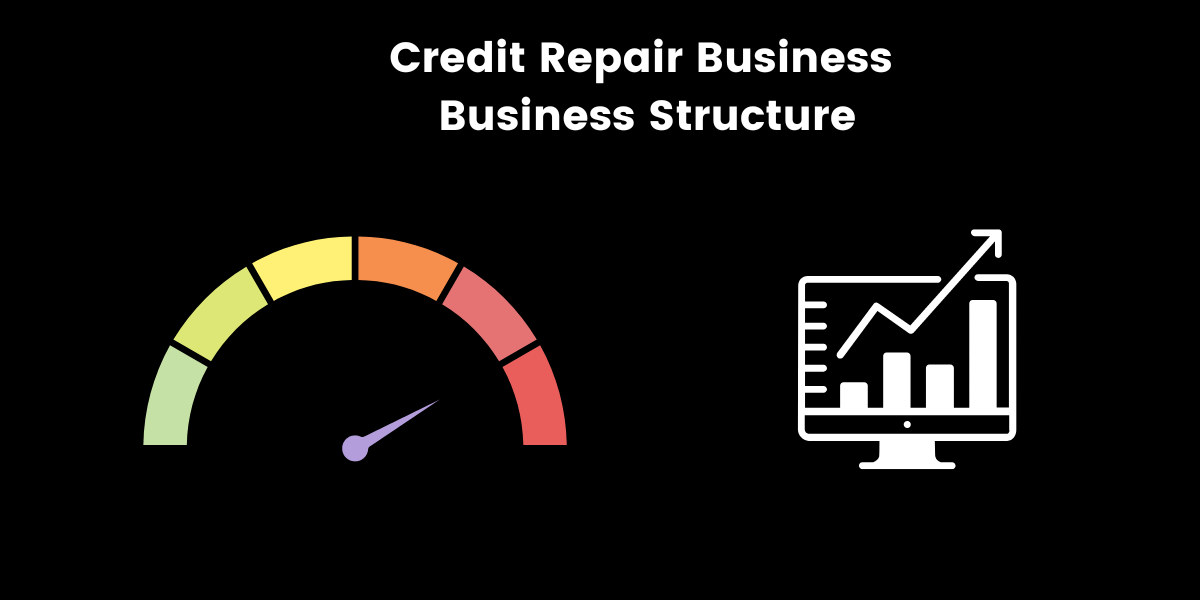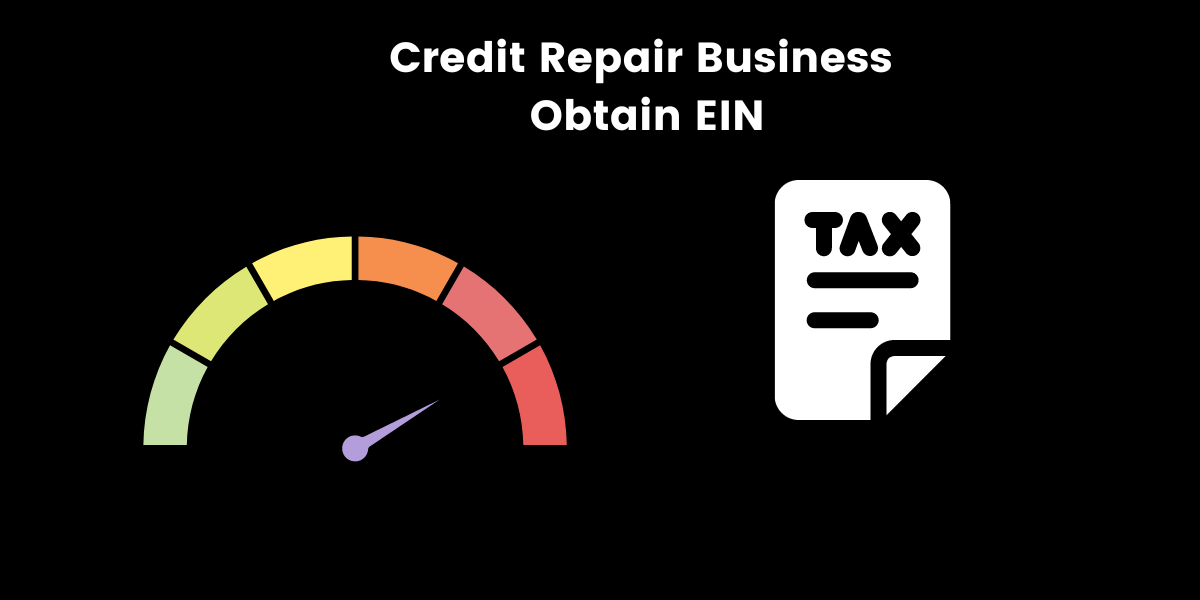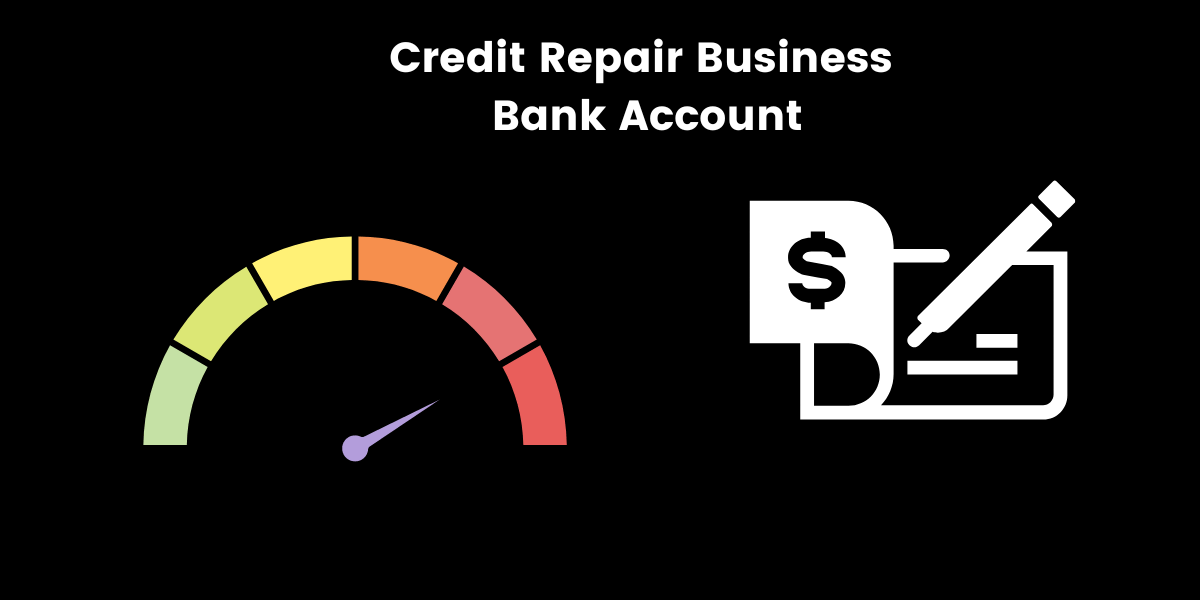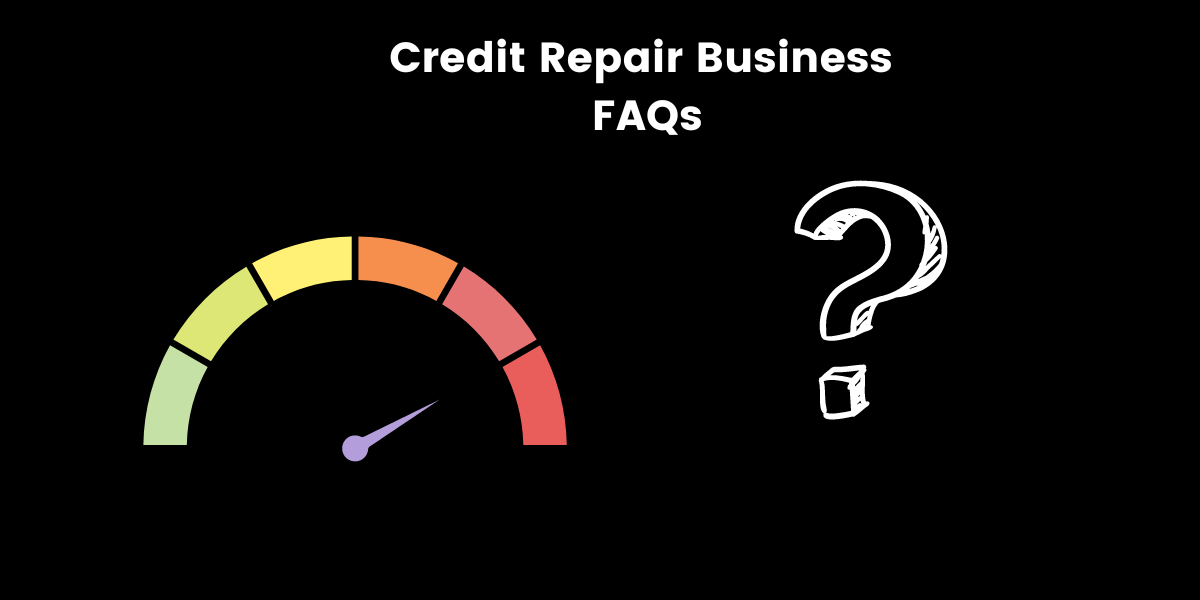
Have you ever wondered what the best way is for you to start your own credit repair business?
It can be a great way to help people improve their credit scores and get back on track financially. But before you start a credit repair business, there are some important things to consider.
You need to know the law, choose your business structure, obtain an EIN from the IRS, and open a bank account for your credit repair business.
As you navigating what credit repair companies will do and can do, it’s important you think through the basics of getting your business setup along with the actual product or service you’re going to be offering.
Table of Contents:
- Before You Start a Credit Repair Business
- Choose Your Business Structure
- Obtain an EIN from the IRS
- Open a Bank Account for Your Credit Repair Business
- FAQs in Relation to How to Start a Credit Repair Business
- Conclusion
Before You Start a Credit Repair Business
If so, there are some important steps to take before diving in. Credit repair is an important service that can help people get back on their feet financially and improve their credit score.
However, it’s not something to be taken lightly – setting up a successful credit repair business requires knowledge of the law and careful planning.
Before getting started, here are five key things to consider:
“1. Research the Law:”
Before you start your business, make sure you understand all relevant laws related to credit repair services in your state or country. This includes any licensing requirements as well as consumer protection regulations that may apply to your services.
“2. Choose Your Business Structure:”
You will need to decide whether you want to set up a sole proprietorship or form an LLC for your business structure.
Each has its own advantages and disadvantages depending on what type of entity best suits your needs and goals for the company’s future growth potential.
“3. Obtain an EIN from the IRS”
To open a bank account for your new venture, you will need an Employer Identification Number (EIN) from the Internal Revenue Service (IRS).
This number identifies businesses with tax-related transactions such as filing taxes or applying for loanscredit cards etc., so it’s essential if you plan on accepting payments through these methods later down the line when running a full-fledged credit repair operation!
“4. Create Professional Documentation”
It is also important that all documentation associated with providing clients with services should be professional looking and adhere strictly by legal standards; this includes contracts between yourself and customers outlining exactly what they can expect from working with you along with any other necessary paperwork like invoices etc..
Additionally, ensure everything is kept organized in one place so nothing gets lost over time!
“5. Know What You’re Doing”
Last but not least – know what you’re doing!
Make sure that before advertising any of your services publicly or taking on clients – do extensive research into how exactly credit scores work & familiarize yourself thoroughly with all aspects of repairing them successfully firstly!
A good way of doing this would be attending seminar courses run by industry professionals who have experience in this field already which could give invaluable insight into different strategies used within the sector today too!
In conclusion, starting a credit repair business is not something to be taken lightly.
It requires careful planning and research into the law as well as an understanding of how credit scores work.
Make sure you have all your ducks in a row before taking on clients or advertising your services publicly – this will ensure that you are providing the best possible service for them!
Key Takeaway: Starting a credit repair business requires careful planning and research into the law, as well as an understanding of how credit scores work. It is important to obtain an EIN from the IRS, create professional documentation, and attend seminars or courses run by industry professionals in order to provide the best possible service for clients.
Choose Your Business Structure

Starting a credit repair business is an exciting venture, but it’s important to make sure you have the right foundation in place. One of the most critical steps is choosing your business structure.
This decision will affect how much liability you take on and how much taxes you pay.
There are four main types of business structures:
Sole proprietorships, partnerships, limited liability companies (LLCs), and corporations. Each has its own advantages and disadvantages that should be considered before making a final decision.
Sole Proprietorship:
A sole proprietorship is the simplest form of business structure available and requires no paperwork or filing fees to set up. The owner takes full responsibility for all debts and liabilities incurred by the company, as well as any profits made from it.
Taxes are paid through personal income tax returns instead of corporate filings, which can save money in some cases.
However, this type of structure does not provide any protection against personal liability if something goes wrong with the company – meaning creditors could come after your personal assets if needed to settle debts or lawsuits against your business.
Partnership:
A partnership allows two or more people to share ownership over a single entity without having to incorporate it into a separate legal entity like an LLC or corporation would require them to do so legally speaking they become co-owners who share both profits and losses associated with their enterprise equally unless otherwise specified in their agreement .
Partners also have unlimited personal liability for any debts incurred by their businesses so they need to consider carefully who they partner with when setting up shop .
Taxation wise , each partner pays taxes based on hisher individual earnings rather than paying corporate taxes at higher rates .
Limited Liability Company (LLC):
An LLC provides owners with limited liability protection while still allowing them flexibility in managing their businesses similar to that found within a partnership arrangement .
Owners only face financial risk equal to what they invest into the company unlike other forms where there may be unlimited exposure due taxation is handled differently depending on whether members choose pass-through taxation or elect C Corporation status .
Pass-through taxation means that members report all income earned from their LLCs directly onto their individual tax returns whereas electing C Corporation status means that members pay corporate taxes at higher rates however this can offer certain benefits such as greater access capital markets etc ..
Corporation:
Corporations provide owners with limited liability protection just like LLCs but require more paperwork upfront plus ongoing compliance requirements including annual meetings board elections etc ..
Additionally corporations must file separate tax returns than those filed by individuals resulting in double taxation since shareholders must first pay corporate income tax then dividends distributed out afterwards are taxed again when received by shareholders themselves thus increasing overall costs associated operating under this type structure ..
No matter which option you decide upon for your credit repair business, make sure you consult professionals such as lawyers or accountants beforehand so you understand all implications involved before taking action!
Key Takeaway: When starting a credit repair business, it’s important to choose the right business structure. Sole proprietorships are simple but provide no protection against personal liability; partnerships share profits and losses equally with unlimited personal liability; LLCs offer limited liability protection while allowing flexibility in managing businesses; and corporations provide limited liability protection but require more paperwork upfront and ongoing compliance requirements. Make sure you consult professionals before making a decision!
Obtain an EIN from the IRS

If so, one of the first steps is to obtain an Employer Identification Number (EIN) from the Internal Revenue Service (IRS). An EIN is like a Social Security number for your business and it’s required by law if you have employees or file taxes.
Fortunately, obtaining an EIN isn’t difficult – all you need to do is fill out and submit Form SS-4 on the IRS website. This form requires basic information about your business such as its name, address, type of organization and tax classification.
Once submitted, you should receive your EIN within four weeks. If this sounds intimidating or overwhelming don’t worry – there are plenty of resources available online that can help guide you through the process step-by-step.
For example, websites like CreditRepairExpert provide detailed instructions on how to complete Form SS-4 correctly and efficiently in order to get your EIN quickly.
Additionally, many accounting software programs offer free templates that make filing taxes easier than ever before!
Obtaining an EIN may seem daunting at first but with some research and preparation it doesn’t have to be complicated or time consuming!
So take a deep breath – once you’ve got your new EIN in hand then it’s time for the real fun part:
building up your credit repair business!
Key Takeaway: Obtaining an EIN is a necessary step for starting a credit repair business. Fortunately, it’s not difficult to do and there are plenty of resources available online that can help guide you through the process. With some research and preparation, getting your EIN quickly doesn’t have to be complicated or time consuming – then you can move on to building up your business!
Open a Bank Account for Your Credit Repair Business

If so, one of the first steps is to open up a bank account. This can be an intimidating process, but it doesn’t have to be!
With some research and careful consideration, you can find the perfect bank for your business needs. When selecting a bank for your credit repair business, there are several factors to consider.
First and foremost, make sure that the institution offers services tailored specifically for businesses like yours.
Many banks offer special accounts designed with small businesses in mind; these may include features such as lower fees or higher interest rates on deposits.
Additionally, look into whether or not they offer online banking options which could save you time when managing your finances from afar.
It’s also important to compare fees between different banks before making any decisions – this includes things like monthly maintenance charges and ATM usage fees.
Different institutions will charge varying amounts for similar services so it pays off to shop around until you find one that fits within your budget constraints.
Once you’ve chosen the right type of account and compared all available fees at various banks, it’s time to open up an account!
Be sure to bring along all necessary documents such as identification cards (driver’s license/passport) proof of address (utility bill), social security number etc., when applying for an account at the bank branch office or online application form if available on their website.
Also remember that having money deposited regularly into this new account will help keep it active over time – something many financial institutions require in order to maintain service levels with customers who don’t use their accounts often enough otherwise.
Finally, don’t forget about customer service! It’s always best practice to inquire about customer support availability prior opening any kind of financial product, especially when dealing with sensitive information related directly towards credit repair.
Make sure that whatever institution you choose has reliable staff members who are willing and able answer questions quickly whenever needed.
By taking these simple steps, setting up a bank account should be relatively straightforward – allowing you focus more energy on growing successful credit repair business instead!
Key Takeaway: When starting a credit repair business, it’s important to research and compare different banks to find one that offers services tailored for businesses like yours. Additionally, be sure to bring all necessary documents when opening an account and inquire about customer service availability prior. With these steps in mind, setting up a bank account should be relatively straightforward – allowing you more time to focus on growing your business!
FAQs in Relation to How to Start a Credit Repair Business

Do I need to offer credit repair software with my credit repair business?
This all depends on how you are going to run your business. If you want to work on credit repair process or review credit repair laws with your clients, you’ll need to have some type of software to help you with that.
Is it possible to run a profitable credit repair business?
Yes, a credit repair business can be highly profitable. With the right strategies and tools in place, it is possible to make a good living by helping people improve their credit scores.
Credit repair businesses provide valuable services that help individuals and families get back on track financially.
They work with clients to dispute inaccurate information on their credit reports, negotiate lower interest rates or remove negative items from their records.
By providing these services, you can build relationships with your customers and generate repeat business as well as referrals from satisfied customers.
Additionally, many credit repair companies offer other financial services such as debt consolidation and budgeting advice which can also increase profits for the company.
Finally, there are numerous opportunities for marketing your business online through social media platforms like Facebook or Instagram to reach potential customers who may need your assistance in repairing their credit score.
All of these factors make a credit repair business a profitable venture.
How much should I charge for credit repair services?
The cost of credit repair services can vary greatly depending on the complexity of the situation and how much work is required. Generally, a reputable credit repair company will charge anywhere from $50 to $100 per hour for their services.
Additionally, some companies may offer flat-rate packages that include an initial fee plus monthly payments over a period of time.
The best way to determine how much you should charge for your credit repair services is to assess each individual case and create a custom plan based on the needs of your client.
It’s important to be transparent about pricing so clients know exactly what they are paying for upfront.
Furthermore, it’s also wise to provide customers with detailed reports after each session so they can track progress and ensure that their money is being well spent.
Ultimately, charging fair prices for quality service will help you build trust with your clients and attract more business in the long run!
How do I start my credit repair?
# Starting a Credit Repair Business It requires knowledge of the law, financial management skills, and dedication to helping people improve their credit scores.
The first step is to become familiar with the laws that govern credit reporting and debt collection in your state or country. You should also research how to set up a business entity such as an LLC or corporation.
Once you have established yourself legally, it’s time to start marketing your services by creating a website, setting up social media accounts, and networking with potential clients.
Additionally, you will need to obtain any necessary licenses from your local government before beginning operations.
Finally, create systems for tracking customer progress so that you can provide accurate reports on their progress over time. With hard work and dedication, starting a successful credit repair business is possible!
How much can you make with a credit repair company?
Starting a credit repair business can be a lucrative venture. Depending on the size of your business, you could make anywhere from $50,000 to over $100,000 per year.
The amount of money you make depends largely on how many clients you are able to take on and the services that they require.
If you’re just starting out with a small credit repair company, it is possible to make around $50,000 annually if you have enough customers who need your services.
However, as your business grows and more people become aware of what credit repair companies do and how they can help them improve their financial situation, this number can quickly increase up to six figures or more depending on the size of your client base.
In addition to charging fees for specific services such as disputing negative items in one’s credit report or helping someone create an effective budget plan that will help them get back on track financially; many successful businesses also offer additional products like debt consolidation plans or even identity theft protection which can generate additional revenue streams for those running a credit repair company.
With proper marketing strategies and customer service practices in place along with offering quality services at competitive prices; there is no limit to how much money one could potentially earn through owning their own credit repair business.
Conclusion
It requires dedication, hard work, and knowledge of the law.
Knowing the Credit Repair Organizations Act is essential to running your business legally and ethically. Choosing the right business structure for you is also important as it will determine how you are taxed and how much liability protection you have.
Obtaining an EIN from the IRS is easy and necessary for any type of business entity that wants to open a bank account or hire employees.
Finally, opening a separate bank account for your credit repair business helps keep track of expenses related to running your company more efficiently while protecting yourself from potential liabilities down the road.
With all these steps taken care of, you’re now ready to start a credit repair business!
If you’re looking to start a credit repair business, now is the time to take action. With the right tools and resources, you can make a real difference in people’s lives by helping them improve their credit scores. From understanding the basics of credit repair to finding the best strategies for success, there are plenty of ways to get started on your journey. Don’t wait any longer – start your credit repair business today and help others achieve financial freedom!